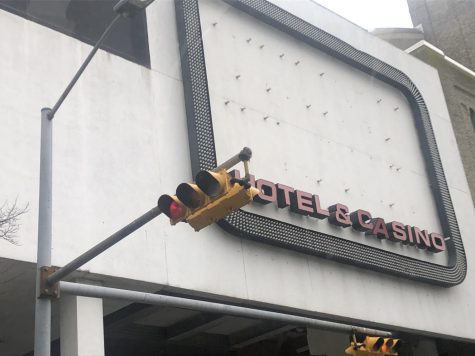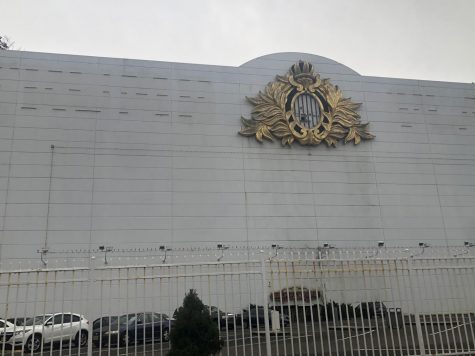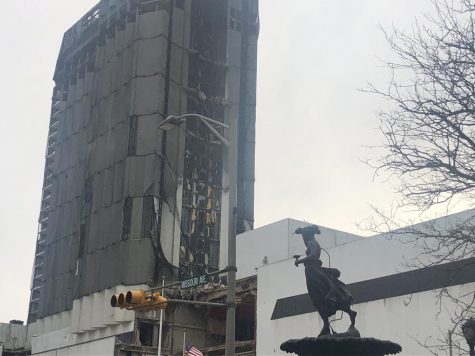Trump Plaza Crumbles With the Presidency
The Trump Plaza Hotel and Casino, one of the last remnants of Donald Trump’s Atlantic City business investment, will be imploded just weeks after Joe Biden takes office.
“There is something poetic [in the fact] that the Trump Plaza in Atlantic City is scheduled for implosion about a week after President Biden takes office,” tweeted Democratic ex-senator Claire McCaskill. The January 29th, 2021 demolition date has since been pushed back to February 2021.
The Trump Plaza Hotel and Casino opened its doors in 1984 as Atlantic City’s tenth and largest casino at the time. Complete with reflective glass, embellished floors, and glistening chandeliers, it marked a new age in the “Monopoly City.”
Fast forward thirty-seven years later with a nearly finished Trump presidency, a dramatic Capitol breach, and a suffering casino industry in a Coronavirus-ridden America, the 39-story building is finally coming down. The remains of the Trump Plaza Hotel and Casino are scheduled for implosion a few weeks after Joe Biden’s January 20th, 2021 Inauguration date, an ironic end to Donald Trump’s infamous Atlantic City saga.
“The Plaza area has long been dead, with few visitors, relative to the life on either side at Boardwalk Hall/Caesar’s Casino,” wrote Professor/Historian Levi Fox in an e-mail to me, who spent much time explaining local history at the Trump Plaza as the creator of a media-magnet Donald Trump museum. The Plaza, along with the Trump Taj Mahal and Trump Marina (now the Hard Rock Hotel and Golden Nugget Casino) closed years ago, shutting down after Trump Entertainment Resorts filed for its third bankruptcy. Calls for the building’s demolition prompted a multi-year long conflict between Atlantic City Mayor Marty Small, Sr. and billionaire property-owner Carl Icahn. Ultimately, the building was deemed an “imminent hazard,” due to dilapidation and falling debris.

Even with Trump’s name off of the property, the vacant building’s persistence has been used as a metaphor for Trump’s time in office and his refusal to concede. Back in 2016, then-Democratic nominee Hillary Clinton stood in front of the Plaza’s fading Trump letters, stating, “I want you to understand [that] what he did here in Atlantic City is exactly what he will do if he wins in November…It is the same scam, over and over again.”
A Washington Post timeline reveals that the mogul used bankruptcies to circumvent personal liability — a strategy that ended up earning him millions of dollars. Trump resigned from Trump Entertainment Resorts in 2009 before Atlantic City really began to collapse, exiting the city with what he calls, “impeccable” timing. The President has continuously diverted attention away from his faults and onto the money that he made, arguing that the practice is, “effective and commonly used,” among, “our country’s elite business people.” Many argue that Trump’s behavior in Atlantic City was just the harsh reality of business.

Whether people believe it was a great business tactic or not, Trump survived at the expense of others. He cost lenders millions after using chapter laws to his advantage, stating, “These [lenders] are not the nice sweet little people that you think.” He also left a trail of unpaid bills; hundreds of small contractors and businesses, to this day, feel cheated by Trump’s bill-disputing strategies.
At the beginning of Trump’s multi-decade saga, Atlantic City welcomed Trump with open arms. Residents attended his extravagant boxing matches, star-studded events, and even relished in the prospect of the “eighth wonder of the world.” By 1991 Trump’s multiple casinos employed over 12,700 people, accounting for about one-third of the casino workforce. When business declined, “He never acknowledged their [workers] pain or the financial pressures that came as a result of business failures,” said Bryant Simon, Temple University professor of history and author of Boardwalk of Dreams: Atlantic City and the Fate of Urban America. “He stumbled because he took out bad loans, lied about the prospects for his businesses, and mishandled budgets. And then, he blamed Atlantic City. He said it was an awful place with awful leadership, but he was the problem — always.”

Levi Fox believes that Trump’s legacy in Atlantic City is diminishing. However, he worries that it may be a problem in the sense that, “his career in Atlantic City offers key context for his actions as President.” While Fox’s pop-up museum project is on hiatus, he hopes to reopen it for the implosion event. The stories, objects, and imprinted legacy, while not always tangible, offer more details about Trump’s time in Atlantic City than anything else can — both the good and the bad.
Looking to the future, Mayor Marty Small, Sr. hopes that redeveloping the “eyesore” oceanfront spot will bring renewal to the suffering city. Atlantic City needs to support its small businesses and “establish more year-round, less depression proof industries,” said Simon, especially with the Coronavirus pandemic exposing issues in the city’s single-industry reliance. The city’s first bold move will be auctioning the role of pressing the button to dynamite Trump Plaza, which the mayor hopes will raise over $1 million dollars for the Boys & Girls Club of Atlantic City.

But Trump Plaza souvenirs from a failed empire have become bright red MAGA hats in a nation battling a worldwide Coronavirus pandemic, and more notably, on Capitol grounds. “I really don’t think it’ll be easy to get rid of the damage that Trump did to this country,” said Sonia Mar ‘22, who believes that Trump’s brand will thrive even after he leaves office. “I think, overall, that Trump’s influence is here to stay because it’s so hard to overcome what he did.”
Even with Donald Trump long gone from Atlantic City, and soon from presidential office, his imprint on America is one that certainly will not vanish like a demolished building.
“He said [Atlantic City] was an awful place with awful leadership, but he was the problem — always,” said Bryant Simon, Temple University professor of history and author of Boardwalk of Dreams: Atlantic City and the Fate of Urban America.
Marian Caballo is a Copy Chief for ‘The Science Survey,’ and she is elated to be on staff for a second year. She is drawn to journalism because it...

![“There is something poetic [in the fact] that the Trump Plaza in Atlantic City is scheduled for implosion about a week after President Biden takes office,” tweeted Democratic ex-senator Claire McCaskill. The January 29th, 2021 demolition date has since been pushed back to February 2021.](https://thesciencesurvey.com/wp-content/uploads/2020/12/nwdn_file_temp_1608581488291-900x675.jpeg)